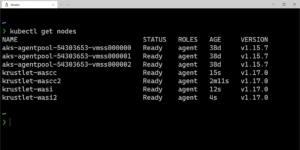VS Code Docker extension can now run containers in Azure Container Instances
Today we are releasing version 1.4 of our Visual Studio Code Docker extension, which makes it easy to build, manage, and deploy containerized applications from Visual Studio Code (VS Code). In this release, you can now view and troubleshoot containers deployed in Azure Container Instances (ACI) from within VS Code. If you are using, or Read more

